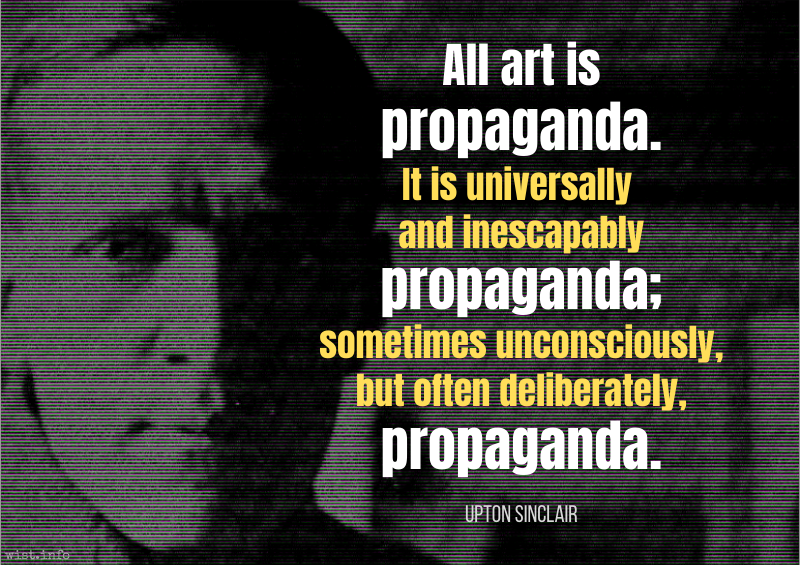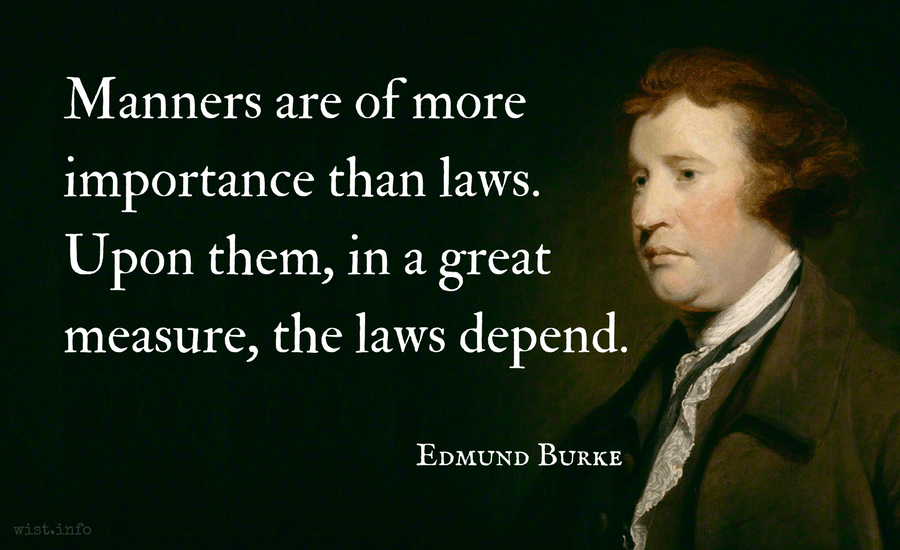Scholarship has yielded to the irresistible pull that science exerts on our minds by its self-confidence and the promise of certified knowledge. But, to repeat, the objects of culture are not analyzable, not graspable by the geometric mind. Great works of art are great by virtue of being syntheses of the world; they qualify as art by fusing form and contents into an indivisible whole; what they offer is not “discourse about,” nor a cipher to be decoded, but a prolonged incitement to finesse. So it is paradoxical that our way of introducing young minds to such works should be the way of scholarship.
Jacques Barzun (1907-2012) French-American historian, educator, polymath
“Culture High and Dry” (1984), The Culture We Deserve (1989)
(Source)
An earlier version of this essay was published as "Scholarship versus Culture," Atlantic Monthly (1984-11).
Quotations about:
culture
Note not all quotations have been tagged, so Search may find additional quotes on this topic.
In the four quarters of the globe, who reads an American book? Or goes to an American play? or looks at an American picture or statue? What does the world yet owe to American physicians or surgeons? What new substances have their chemists discovered? Or what old ones have they advanced? What new constellations have been discovered by the telescopes of Americans? Who drinks out of American glasses? Or eats from American plates? Or wears American coats or gowns? or sleeps in American blankets? Finally, under which of the old tyrannical governments of Europe is every sixth man a slave, whom his fellow-creatures may buy and sell and torture?
Sydney Smith (1771-1845) English clergyman, essayist, wit
Edinburgh Review, No. 65, Article 3 (1820-01)
(Source)
Review of Adam Seybert, Statistical Annals of the United States of America (1818).
For the great law of culture is: Let each become all that he was created capable of being; expand, if possible, to his full growth; resisting all impediments, casting off all foreign, especially all noxious adhesions; and show himself at length in his own shape and stature, be these what they may.
Thomas Carlyle (1795-1881) Scottish essayist and historian
“Jean Paul Friedrich Richter,” Edinburgh Review No. 91, Art. 7 (1827-06)
(Source)
A review of Heinrich Döring, Jean Paul Friedrich Richter's Life, with a Sketch of His Works (1826).
Writing, printing, and the Internet give a false sense of security about the permanence of culture. Most of the million details of a complex, living culture are transmitted neither in writing nor pictorially. Instead, cultures live through word of mouth and example. That is why we have cooking classes and cooking demonstrations, as well as cookbooks. That is why we have apprenticeships, internships, student tours, and on-the-job training as well as manuals and textbooks. Every culture takes pains to educate its young so that they, in their turn, can practice and transmit it completely. Educators and mentors, whether they are parents, elders, or schoolmasters, use books and videos if they have them, but they also speak, and when they are most effective, as teachers, parents, or mentors, they also serve as examples.
Jane Jacobs (1916-2006) American-Canadian journalist, author, urban theorist, activist
Dark Age Ahead, ch. 1 “The Hazard” (2004)
(Source)
Indeed, it is a cruel truth of the history of all art and literature that most would-be poets, writers, and painters fail. The man or woman of real talent is rare, the born genius rarer still. For every book that survives the merciless judgment of time, there are nine hundred and ninety-nine rotting unread in libraries and nine thousand and ninety-nine that were never written in the first place.
Michael Harrington (1928-1989) American writer, political activist, political scientist [Edward Michael Harrington, Jr.]
Fragments of the Century, ch. 2 “The Death of Bohemia” (1973)
(Source)
There’s a great deal to be said for nationalism, for keeping diversity — in literature, in art, in language, and in all kinds of cultural things. But when it comes to politics, I think nationalism is an unmitigated evil. I don’t think there’s a single thing to be said in its favor.
Bertrand Russell (1872-1970) English mathematician and philosopher
Interview by Woodrow Wyatt, BBC TV (1959)
Collected in Bertrand Russell's BBC Interviews (1959) [UK] and Bertrand Russell Speaks His Mind (1960) [US]. Reprinted (abridged) in The Humanist (1982-11/12), and in Russell Society News, #37 (1983-02).
The superstition into which we’re born,
Even when we recognize it, loses not
Its power on us! Not all those are free
Who ridicule their chains.[Der Aberglaub’, in dem wir aufgewachsen,
Verliert, auch wenn wir ihn erkennen, darum
Doch seine Macht nicht über uns. — Es sind
Nicht alle frei, die ihrer Ketten spotten.]Gotthold Lessing (1729-1781) German playwright, philosopher, dramaturg, writer
Nathan the Wise [Nathan der Weise], Act 4, sc. 4 [Templar] (1779) [tr. Corbett (1883)]
(Source)
(Source (German)). Alternate translations:Yet the superstition
in which we have grown up, not therefore loses
when we detect it, all its influence on us.
Not all are free that can bemock their fetters.
[tr. Taylor (1790)]The superstition in which we grew up,
Does not cease influencing us, e'en after
We have discover'd its absurdity.
Not all are free who do bemock their fetters.
[tr. Reich (1860)]The superstition in which we were brought up never loses its power over us, even after we understand it.
[Source (1866)]And yet the superstitions we have learned
From education, do not lose their power
When we have found them out; nor are all free
Whose judgment mocks the galling chains they wear.
[tr. Boylan (1878)]The superstition in which we have grown up
Does not lose (even if we see through it)
Its power on us, on that account;
All are not free who mock their chains.
[tr. Jacks (1894)]The superstitions of our early years,
E'en when we know them to be nothing more,
Lose not for that their hold upon our hearts;
Not all are free who ridicule their chains.
[tr. Maxwell (1917)]The superstition in which we have grown up does not lose its power over us even for the reason that we recognize it as such. Not all are free who mock their chains.
[tr. Reinhardt (1950)]The superstition in which we grew up,
Though we may recognize it, does not lose
Its power over us -- Not all are free
Who make mock of their chains.
[tr. Morgan (1955)]Merely because we see the defects of the superstition we grew up in, it doesn't lose its hold upon our souls! Those men who mock their chains are not all free!
[tr. Ade (1972)]
Language both reflects and shapes society. Culture shapes language and then language shapes culture. Little wonder that the words we use to talk to each other, and about each other, are the most important words in our language: they tell us who I am, they tell us who you are, they tell us who “they” are.
Rosalie Maggio (1944-2021) American writer
Unspinning the Spin: The Women’s Media Center Guide to Fair and Accurate Language, “Writing Guidelines / Introduction” (2014)
(Source)
The first sentence (and much of the groundwork for the overall work) is included in her The Bias-Free Word Finder: A Dictionary of Non-Discriminatory Language, Introduction (1992).
The source link is to the web page that the WMC set up for the book.
I think of Art, at its most significant, as a DEW line, a Distant Early Warning system, that can always be relied on to tell the old culture what is beginning to happen to it.
Marshall McLuhan (1911-1980) Canadian philosopher, communication theorist, educator
Quoted in Richard Schickel, “Marshall McLuhan: Canada’s Intellectual Comet,” Harper’s Magazine (1965-11)
(Source)
We pursued an empty fame and popularity even down to the applause of the playhouse, poetical competitions, and contests for garlands of grass, foolish plays on the stage, and unbridled lusts.
[Hac popularis gloriae sectantes inanitatem, usque ad theatricos plausus et contentiosa carmina et agonem coronarum faenearum et spectaculorum nugas et intemperantiam libidinum]
Augustine of Hippo (354-430) Christian church father, philosopher, saint [b. Aurelius Augustinus]
Confessions, Book 4, ch. 1 / ¶ 1 (4.1.1) (c. AD 398) [tr. Ryan (1960)]
(Source)
(Source (Latin)). Alternate translations:Hunting after the emptiness of popular praise, down even to theatrical applauses, and poetic prizes, and strifes for grassy garlands, and the follies of shows, and the intemperance of desires.
[tr. Pusey (1838)]Striving after the emptiness of popular fame, even to theatrical applauses, and poetic contests, and strifes for grassy garlands, and the follies of shows and the intemperance of desire.
[tr. Pilkington (1876)]Vain seeking the emptiness of popular praise, even the applause of the theatres , and the prizes for verses, and the struggle for withering garlands, and the follies of shows, and the gratification of ungoverned desires.
[tr. Hutchings (1890)]Education drew me to follow the toys that men call fame, applause in the theatre, prize poems, contests for crowns of hay, the follies of the stage, all the riot of passion.
[tr. Bigg (1897)]I pursued the emptiness of popular glory and the applause of spectators, with competition for prize poems and strife for garlands of straw and the vanity of stage shows and untempered lusts.
[tr. Sheed (1943)]In my public life I was striving after the emptiness of popular fame, going so far as to seek theatrical applause, entering poetic contests, striving for the straw garlands and the vanity of theatricals and intemperate desires.
[tr. Outler (1955)]We would hunt for worthless popular distinctions, the applause of an audience, prizes for poetry, or quickly fading wreaths won in competition. We loved the idle pastimes of the stage and in self-indulgence we were unrestrained.
[tr. Pine-Coffin (1961)]I and my friends would be hunting after the empty show of popularity -- theatrical applause from the audience, verse competitions, contests for crowns of straw, the vanity of the stage, immoderate lusts.
[tr. Warner (1963)]I would be seeking empty popularity, cheers in the theatre, poetic competitions, strife for straw crowns, trifles of stage shows, and undisciplined desires.
[tr. Blaiklock (1983)]We pursued trumpery, popular acclaim, theatrical plaudits, song-competitions and the contest for ephemeral wreaths, we watched trashy shows and indulged our interperate lusts.
[tr. Boulding (1997)]
Maybe the purpose of this sorry and tragic error committed in my native Mississippi by two white adults on an afflicted Negro child is to prove to us whether or not we deserve to survive. Because if we in America have reached that point in our desperate culture when we must murder children, no matter for what reason or what color, we don’t deserve to survive, and probably won’t.
William Faulkner (1897-1962) American novelist
“The Art of Fiction,” Interview by Jean Stein, Paris Review #12 (Spring 1956)
(Source)
Regarding the Emmett Till murder.
If you put together all the ingredients that naturally attract children — sex, violence, revenge, spectacle and vigorous noise — what you have is grand opera.
Judith Martin (b. 1938) American author, journalist, etiquette expert [a.k.a. Miss Manners]
Miss Manners’ Guide to Excruciatingly Correct Behavior, Part 9 “Advanced Civilization,” “Play” (1983)
(Source)
What we commonly have in our mind when we speak of religion is a definite set of doctrines, of a more or less metaphysical character, formulated in a creed and supported by an organization distinct from the state. And the first thing we have to learn about the religion of the Greeks is that it included nothing of the kind. There was no church, there was no creed, there were no articles. Priests there were, but they were merely public officials, appointed to perform certain religious rites. The distinction between cleric and layman, as we know it, did not exist; the distinction between poetry and dogma did not exist; and whatever the religion of the Greeks may have been, one thing at any rate is clear, that it was something very different from all that we are in the habit of associating with the world.
G. Lowes Dickinson (1862-1932) British political scientist and philosopher [Goldsworthy "Goldie" Lowes Dickinson]
The Greek View of Life, ch. 1 “Religion,” sec. 1 (1911)
(Source)
Respect the ancient stock, nor make
The Latian tribes their style forsake,
Nor Troy’s nor Teucer’s surname take,
Nor garb nor language let them change
For foreign speech and vesture strange,
But still abide the same:
Let Latium prosper as she will,
Their thrones let Alban monarchs fill;
Let Rome be glorious on the earth,
The centre of Italian worth;
But fallen Troy be fallen still,
The nation and the name.[Ne vetus indigenas nomen mutare Latinos
neu Troas fieri iubeas Teucrosque vocari
aut vocem mutare viros aut vertere vestem.
Sit Latium, sint Albani per saecula reges,
sit Romana potens Itala virtute propago:
occidit, occideritque sinas cum nomine Troia.]Virgil (70-19 BC) Roman poet [b. Publius Vergilius Maro; also Vergil]
The Aeneid [Ænē̆is], Book 12, l. 823ff (12.823-828) [Juno] (29-19 BC) [tr. Conington (1866)]
(Source)
Juno agreeing to Jove to let the Trojans win the war for Italy, but only if they become assimilated into the nations they warred against, losing their culture and identity.
(Source (Latin)). Alternate translations:Let not the Latins change their ancient name,
Nor let them be call'd Trojans I beseech,
Nor yet to change their habit, nor their speech;
Let it be Latium, and for ever be
The Alban fathers in great Italie;
Let Romans by their valour conquer all.
Troy's slain: and with her let the name now fall.
[tr. Ogilby (1649)]But let the Latins still retain their name,
Speak the same language which they spoke before,
Wear the same habits which their grandsires wore.
Call them not Trojans: perish the renown
And name of Troy, with that detested town.
Latium be Latium still; let Alba reign
And Rome's immortal majesty remain.
[tr. Dryden (1697)]You will not command the natives of Latium to change their ancient name, or become Trojans, and be called Teucri, or to change their language or alter their dress. Let Latium subsist; let the kings of Alba subsist through the ages; let the sons of Rome rise to imperial power by means of Italian valour: Troy hath perished, and suffer it to perish with its name forever.
[tr. Davidson/Buckley (1854)]Bid not the Latins change their ancient name;
Trojans and Teucri let them not be called,
Nor change their speech or garb. Be it Latium still.
Let Alban monarchs through the centuries reign;
Let Rome's posterity attain their might
Through virtue of Italia. Troy hath fallen.
Then let it fall forever with its name.
[tr. Cranch (1872), l. 1044ff]Bid thou not the native Latins change their name of old, nor become Trojans and take the Teucrian name, or change their language, or alter their attire: let Latium be, let Alban kings endure through ages, let Italian valour be potent in the race of Rome. Troy is fallen; let her and her name lie where they fell.
[tr. Mackail (1885)]Let them not change their ancient name, those earth-born Latin men,
Nor turn them into Trojan folk, or call them Teucrians then:
Let not that manfolk shift their tongue, or cast their garb aside;
Let Latium and the Alban kings through many an age abide,
And cherish thou the Roman stem with worth of Italy:
Troy-town is dead: Troy and its name for ever let them die!
[tr. Morris (1900)]Ne'er let the children of the soil disown
The name of Latins; turn them not, I pray,
To Trojan folk, to be as Teucrians known.
Ne'er let Italia's children put away
The garb they wear, the language of to-day
Let Latium flourish, and abide the same,
And Alban kings through distant ages sway.
Let Rome through Latin prowess wax in fame;
But fall'n is Troy, and fall'n for ever be her name.
[tr. Taylor (1907), st. 108, l. 955ff]Let not the Latins lose
their ancient, native name. Bid them not pass
for Trojans, nor be hailed as Teucer's sons;
no alien speech, no alien garb impose.
Let it be Latium ever; let the lords
of Alba unto distant ages reign;
let the strong, master blood of Rome receive
the manhood and the might of Italy.
Troy perished: let its name and glory die!
[tr. Williams (1910)]Command not the native Latins to change their ancient name, nor to become Trojans and be called Teucrians, nor to change their tongue and alter their attire: let Latium be, let Alban kings endure through ages, let be a Roman stock, strong in Italian valour: fallen is Troy, and fallen let her be, together with her name!
[tr. Fairclough (1918)]Do not command the Latins, native-born,
To change their language, to be known as Trojans,
To alter speech or garb; let them be Latium,
Let Alban kings endure through all the ages,
Let Roman stock, strong in Italian valor,
Prevail: since Troy has fallen, let her name
Perish and be forgotten.
[tr. Humphries (1951)]Do not command the indigenous Latins to change their ancient
Name, to beocme Trojans and to be called the Teucrians:
Allow them to keep the old language and their traditional dress:
Let it be Latium for ever, and the kings be Alban kings;
Let the line be Roman, the qualities making it great be Italian.
Troy's gone; may it be gone in name as well as reality.
[tr. Day-Lewis (1952)]Do not let the native-
born Latins lose their ancient name, become
Trojans, or be called Teucrians; do not
make such men change their language or their dress.
Let Latium still be, let Alban kings
still rule for ages; let the sons of Rome
be powerful in their Italian courage.
Troy now is fallen; let her name fall, too.
[tr. Mandelbaum (1971), l. 1093ff]Never command the land's own Latin folk
To change their old name, to become new Trojans,
Known as Teucrians; never make them alter
Dialect or dress. Let Latium be.
Let there be Alban kings for generations,
And let Italian valor be the strength
Of Rome in after times. Once and for all
Troy fell, and with her name let her like fallen.
[tr. Fitzgerald (1981), l. 1116ff]Do not command the Latins to change their ancient name in their own land, to become Trojans and be called Teucrians. They are men. Do not make them change their voice or native dress. Let there be Latium. Let the Alban kings live on from generation to generation and the stock of Rome be made mighty by the manly courage of Italy. Troy has fallen. Let it lie, Troy and the name of Troy.
[tr. West (1990)]Don’t order the native Latins to change their ancient name,
to become Trojans or be called Teucrians,
or change their language, or alter their clothing.
Let Latium still exist, let there be Alban kings through the ages,
let there be Roman offspring strong in Italian virtue:
Troy has fallen, let her stay fallen, along with her name.
[tr. Kline (2002)]Never command the Latins, here on native soil,
to exchange their age-old name,
to become Trojans, called the kin of Teucer,
alter their language, change their style of dress.
Let Latium endure. Let Alban kings hold sway for all time.
Let Roman stock grow strong with Italian strength.
Troy has fallen -- and fallen let her stay --
with the very name of Troy!
[tr. Fagles (2006), l. 954ff]Do not allow the Latins to change their ancient name
either in becoming Trojans or being called Teucrians.
Don’t let them change their language or their clothing,
may it be Latium, may there be Alban kings for generations;
may the Roman race be strong through Italian power.
It fell: let Troy perish with its name.
[tr. @sentantiq (2015)]
There is no such thing as a unique scientific vision, any more than there is a unique poetic vision. Science is a mosaic of partial and conflicting visions. But there is one common element in these visions. The common element is rebellion against the restrictions imposed by the locally prevailing culture, Western or Eastern as the case may be. It is no more Western than it is Arab or Indian or Japanese or Chinese. Arabs and Indians and Japanese and Chinese had a big share in the development of modern science. And two thousand years earlier, the beginnings of science were as much Babylonian and Egyptian as Greek. One of the central facts about science is that it pays no attention to East and West and North and South and black and yellow and white. It belongs to everybody who is willing to make the effort to learn it. And what is true of science is true of poetry. Poetry was not invented by Westerners. India has poetry older than Homer. Poetry runs as deep in Arab and Japanese culture as it does in Russian and English. Just because I quote poems in English, it does not follow that the vision of poetry has to be Western. Poetry and science are gifts given to all of humanity.
Freeman Dyson (1923-2020) English-American theoretical physicist, mathematician, futurist
The Scientist as Rebel, Part 1, ch. 1 “The Scientist as Rebel” (2006)
(Source)
Originally given as a lecture in Cambridge, England (1992-11). Published as "The Scientist as Rebel," in John Cornwell, ed., Nature's Imagination, Introduction (1995), and "The Scientist as Rebel," New York Review of Books (1995-05-25).
I think the health of our civilization, the depth of our awareness about the underpinnings of our culture, and our concern for the future can all be tested by how well we support our libraries.
Carl Sagan (1934-1996) American scientist and writer
Cosmos, ch. 11 “The Persistence of Memory” (1980)
(Source)
Science is not a monolithic body of doctrine. Science is a culture, constantly growing and changing. The science of today has broken out of the molds of classical nineteenth-century science, just as the paintings of Pablo Picasso and Jackson Pollock broke out of the molds of nineteenth century art. Science has as many competing styles as painting or poetry.
Freeman Dyson (1923-2020) English-American theoretical physicist, mathematician, futurist
Infinite in All Directions, Part 1, ch. 1 “In Praise of Diversity” (1988)
(Source)
Based on a lecture on "Science and Religion," National Conference of Catholic Bishops, Detroit (Sep 1986)
Civilization, a much abused word, stands for a high matter quite apart from telephones and electric lights. It is a matter of imponderables, of delight in the things of the mind, of love of beauty, of honor, grace, courtesy, delicate feeling.
Edith Hamilton (1867-1963) American educator, author, classicist
The Greek Way, ch. 6 (1930)
(Source)
Civilization is a perishable commodity.
Helen MacInnes (1907-1985) Scottish-American writer
The Venetian Affair, ch. 11 [Fenner] (1963)
(Source)
Genocide is natural! Rape is natural! No, what’s natural is not necessarily good — often it’s repulsive. One of the most important functions of human society, and the driving force behind most political institutions, is to prevent humans from doing what comes naturally.
Jared Diamond (b. 1937) American geographer, historian, ornithologist, author
“Choosing Success,” interview by Catherine Seip, National Review (30 Jun 2006)
(Source)
Tolerance and apathy are the last virtues of a dying society.
Aristotle (384-322 BC) Greek philosopher
(Spurious)
Not found in the writings of Aristotle, or, with variation, anywhere early than the 19th Century.More discussion of this quotation's origins and misuses:
The societies to which most readers of this book belong represent a narrow slice of human cultural diversity. Societies from that slice achieved world dominance not because of a general superiority, but for specific reasons: their technological, political, and military advantages derived from their early origins of agriculture, due in turn to their productive local wild domesticable plant and animal species. Despite those particular advantages, modern industrial societies didn’t also develop superior approaches to raising children, treating the elderly, settling disputes, avoiding non-communicable diseases, and other societal problems. Thousands of traditional societies developed a wide array of different approaches to those problems.
Jared Diamond (b. 1937) American geographer, historian, ornithologist, author
The World Until Yesterday: What Can We Learn from Traditional Societies?, Epilogue (2012)
(Source)
Men weren’t really the enemy — they were fellow victims suffering from an outmoded masculine mystique that made them feel unnecessarily inadequate when there were no bears to kill.
Betty Friedan (1921-2006) American writer, feminist, activist
The Feminine Mystique, Epilogue (1974 ed.)
(Source)
Sometimes paraphrased: "Man is not the enemy here, but the fellow victim."
Count heads. That is what matters in all things. When you must, follow the common taste, and make your way toward eminence. The wise should adapt themselves to the present, even when the past seems more attractive, both in the clothes of the soul and of the body. This rule for living holds for everything but goodness, for one must always practice virtue.
[El gusto de las cabeças haze voto en cada orden de cosas. Ésse se ha de seguir por entonces, y adelantar a eminencia. Acomódese el cuerdo a lo presente, aunque le parezca mejor lo pasado, así en los arreos del alma como del cuerpo. Sólo en la bondad no vale esta regla de vivir, que siempre se ha de practicar la virtud.]
Baltasar Gracián y Morales (1601-1658) Spanish Jesuit priest, writer, philosopher
The Art of Worldly Wisdom [Oráculo Manual y Arte de Prudencia], § 120 (1647) [tr. Maurer (1992)]
(Source)
(Source (Spanish)). Alternate translations:Let a prudent man accommodate himself to the present, whether as to body, or mind, though the past may even seem better unto him. In manners onely that rule is not to be observed, seeing vertue is at all times to be practised.
[Flesher ed. (1685)]In everything the taste of the many carries the votes; for the time being one must follow it in the hope of leading it to higher things. In the adornment of the body as of the mind adapt yourself to the present, even though the past appear better. But this rule does not apply to kindness, for goodness is for all time.
[tr. Jacobs (1892)]The choice of the many carries the vote in every field. For the time being, therefore, it must be bowed to, in order to bring it to higher level: the man of wisdom accommodates himself to the present, even though the past seems better, alike in the dress of his spirit, as in the dress of his body. Only in the matter of being decent does this rule of life not apply, for virtue should be practiced eternally.
[tr. Fischer (1937)]
In the course of my travels I remarked that all those whose opinions are decidedly repugnant to ours are not in that account barbarians and savages, but on the contrary that many of these nations make an equally good, if not better, use of their reason than we do. I took into account also the very different character which a person brought up from infancy in France or Germany exhibits, from that which, with the same mind originally, this individual would have possessed had he lived always among the Chinese or with savages, and the circumstance that in dress itself the fashion which pleased us ten years ago, and which may again, perhaps, be received into favor before ten years have gone, appears to us at this moment extravagant and ridiculous. I was thus led to infer that the ground of our opinions is far more custom and example than any certain knowledge.
[Et depuis, en voyageant, ayant reconnu que tous ceux qui ont des sentiments fort contraires aux nôtres ne sont pas pour cela barbares ni sauvages, mais que plusieurs usent autant ou plus que nous de raison; et ayant considéré combien un même homme, avec son même esprit, étant nourri dès son enfance entre des Français ou des Allemands, devient différent de ce qu’il seroit s’il avoit toujours vécu entre des Chinois ou des cannibales, et comment, jusques aux modes de nos habits, la même chose qui nous a plu il y a dix ans, et qui nous plaira peut-être encore avant dix ans, nous semble maintenant extravagante et ridicule; en sorte que c’est bien plus la coutume et l’exemple qui nous persuade, qu’aucune connaissance certaine.]
René Descartes (1596-1650) French philosopher, mathematician
Discourse on Method [Discours de la méthode], Part 2 (1637) [tr. Veitch (1901)]
(Source)
(Source (French)). Alternate translations:And having since observ’d in my travails, That all those whose opinions are contrary to ours, are not therefore barbarous or savage, but that many use as much or more reason then we; and having consider’d how much one Man with his own understanding, bred up from his childhood among the French or the Dutch, becomes different from what he would be, had he alwayes liv’d amongst the Chineses, or the Cannibals: And how even in the fashion of our Clothes, the same thing which pleas’d ten years since, and which perhaps wil please ten years hence, seems now to us ridiculous and extravagant. So that it’s much more Custome and Example which perswades us, then any assured knowledg.
[tr. Newcombe ed. (1649)]I further recognized in the course of my travels that all those whose sentiments are very contrary to ours are yet not necessarily barbarians or savages, but may be possessed of reason in as great or even a greater degree than ourselves. I also considered how very different the self-same man, identical in mind and spirit, may have become, according as he is brought up from childhood amongst the French or Germans, or has passed his whole life amongst Chinese or cannibals. I likewise noticed how even in the fashions of one's clothing the same thing that pleased us ten years ago, and which will perhaps please us once again before ten years are passed, seems at the present time extravagant and ridiculous. I thus concluded that it is much more custom and example that persuade us than any certain knowledge.
[tr. Haldane & Ross (1911)]Since then I have recognized through my travels that those with views quite contrary to ours are not on that account barbarians or savages, but that many of them make use of reason as much or more than we do. I thought, too, how the same man, with the same mind, if brought up from infancy among the French or Germans, develops otherwise than he would if he had always lived among the Chinese or cannibals; and how, even in our fashions of dress, the very thing that pleased us ten years ago, and will perhaps please us again ten years hence, now strikes us as extravagant and ridiculous. Thus it is custom and example that persuade us, rather than any certain knowledge.
[tr. Cottingham, Stoothoff (1985)]
Sick cultures show a complex of symptoms such as you have named … but a dying culture invariably exhibits personal rudeness. Bad manners. Lack of consideration for others in minor matters. A loss of politeness, of gentle manners, is more significant than is a riot.
Culture is the name for what people are interested in, their thoughts, their models, the books they read and the speeches they hear, their table-talk, gossip controversies, historical sense and scientific training, the values they appreciate, the quality of life they admire. All communities have a culture. It is the climate of their civilization.
Walter Lippmann (1889-1974) American journalist and author
A Preface to Politics, ch. 9 “Revolution and Culture” (1913)
(Source)
Cultures are cunning tailors. They cut garments from convenience and then work hard to reshape individuals to fit them.
Charles King (b. 1967) American historian, political scientist, academic, author
Gods of the Upper Air (2019)
(Source)
People in other cultures are generally thought to commit terrible acts for calculated reasons, underscored by some perverse morality that can be readily discounted, so that only the consequences of their actions should be judged, whereas for one’s own group motivation is, and what ought to, mostly count.
Scott Atran (b. 1952) American-French cultural anthropologist
“Good Guys Kill Better,” Huffington Post (17 Mar 2012)
(Source)
A society is most vigorous, and appealing, when both partisan and critic are legitimate voices in the permanent dialogue that is the testing of ideas and experience. One can be a critic of one’s country without being an enemy of its promise.
Daniel Bell (1919-2011) American sociologist, writer, editor, academic
The End of Ideology, Introduction (1961 ed.)
(Source)
Wit is cultured insolence.
[ἡ γὰρ εὐτραπελία πεπαιδευμένη ὕβρις ἐστίν.]
Aristotle (384-322 BC) Greek philosopher
Rhetoric [Ῥητορική; Ars Rhetorica], Book 2, ch. 12, sec. 16 (2.12.16) / 1389b.11 (350 BC) [tr. Freese (1926)]
(Source)
(Source (Greek)). Alternate translations:
The central conservative truth is that it is culture, not politics, that determines the success of a society. The central liberal truth is that politics can change a culture and save it from itself.
Daniel Patrick Moynihan (1927-2003) American politician, diplomat, sociologist
Godkin Lecture, Harvard (1985)
(Source)
As reprinted in his book, Family and Nation (1986).
Culture, the acquainting ourselves with the best that has been known and said in the world, and thus with the history of the human spirit.
Society in its full sense […] is never an entity separable from the individuals who compose it. No individual can arrive even at the threshold of his potentialities without a culture in which he participates. Conversely, no civilization has in it any element which in the last analysis is not the contribution of an individual.
Ruth Benedict (1887-1947) American anthropologist
Patterns of Culture, ch. 8 “The Individual and Culture” (1934)
(Source)
Sometimes quoted as "The community is never an entity ...."
The first step — especially for young people with energy and drive and talent, but not money — the first step to controlling your world is to control your culture. To model and demonstrate the kind of world you demand to live in. To write the books. Make the music. Shoot the films. Paint the art.
We may be through with the past, but the past is not through with us. Ideas of the Stone Age exist side by side with the latest scientific thought. Only a fraction of mankind has emerged from the Dark Ages, and in the most lucid brains, as Logan Pearsall Smith has said, we come upon “nests of woolly caterpillars.”
Bergen Evans (1904-1978) American educator, writer, lexicographer
The Natural History of Nonsense, ch. 1 “Adam’s Navel” (1946)
Lead the ideas of your time and they will accompany and support you; fall behind them and they drag you along with them; oppose them and they will overwhelm you.
Napoleon Bonaparte (1769-1821) French emperor, military leader
(Attributed)
(Source)
Quoted, unsourced, in Jules Bertaut, Napoleon: In His Own Words [Virilités, maximes et pensées de Napoléon Bonaparte], ch. 4 (1916) [tr. Law and Rhodes].
The very act of trying to run counter to the culture is what creates the next wave of culture people will in turn attempt to counter.
David McRaney (contemp.) American journalist, author, lecturer
You Are Not So Smart, ch. 27 “Selling Out” (2011)
(Source)
Language is the road map of a culture. It tells you where its people come from and where they are going.
Rita Mae Brown (b. 1944) American author, playwright
Starting from Scratch: A Different Kind of Writers’ Manual, Part 3, ch. 1 “Words as Separate Units of Consciousness” (1988)
(Source)
Manners are of more importance than laws. Upon them, in a great measure, the laws depend. The law touches us but here and there, and now and then. Manners are what vex or soothe, corrupt or purify, exalt or debase, barbarize or refine us, but a constant, steady, uniform, insensible operation, like that of the air we breathe in. They give their whole form and color to our lives. According to their quality, they aid morals, they supply them, or they totally destroy them.
Edmund Burke (1729-1797) Anglo-Irish statesman, orator, philosopher
Letters on a Regicide Peace, Letter 1 (1796)
(Source)
Somehow he has internalized the ur-cultural narrative: you grow up, go to university, get a job, meet Ms. Right, get married, settle down, have kids, grow old together … it’s like some sort of checklist. Or maybe a list of epic quests you’ve got to complete while level-grinding in a game you’re not allowed to quit, with no respawns and no cheat codes.
This ideal University of Life … would never take the importance of culture for granted. It would know that culture is kept alive by a constant respectful questioning — not by an excessive and snobbish attitude of respect. Therefore, rather than leaving it hanging why one was reading Anna Karenina or Madame Bovary, an ideal course covering nineteenth-century literature would ask plainly “What is it that adultery ruins in a marriage?” Students in the ideal University of Life would end up knowing much the same material as their colleagues in other institutions, they would simply have learned it under a very different set of headings.
Alain de Botton (b. 1969) Swiss-British author
“Reclaiming the Intellectual Life for Posterity,” Liberal Education (Spring 2009)
(Source)
Books serve to show a man that those original thoughts of his aren’t very new after all.
Abraham Lincoln (1809-1865) American lawyer, politician, US President (1861-65)
(Attributed)
(Source)
Recounted in the Pennsylvania School Journal, Vol. 46, #7 (Jan 1898) as an anecdote from a clergyman printed in the New York Tribune.
Culture eats strategy for breakfast.
Peter F. Drucker (1909-2005) Austrian-American business consultant
(Attributed)
Frequently attributed to Drucker, but not found in his writings. See here for more discussion.
Civilization is not inherited; it has to be learned and earned by each generation anew; if the transmission should be interrupted for one century, civilization would die, and we should be savages again.
William James (Will) Durant (1885-1981) American historian, teacher, philosopher
The Lessons of History, ch. 13 “Is Progress Real?” (1968) [with Ariel Durant]
(Source)
Is it progress if a cannibal uses knife and fork?
[Czy jeżeli ludożerca je widelcem i nożem to postęp?]
Stanislaw Lec (1909-1966) Polish aphorist, poet, satirist
Unkempt Thoughts [Myśli nieuczesane] (1957) [tr. Gałązka (1962)]
(Source)
Proverbs contradict each other. That is the wisdom of a nation.
Stanislaw Lec (1909-1966) Polish aphorist, poet, satirist
Unkempt Thoughts [Myśli nieuczesane] (1957) [tr. Gałązka (1962)]
(Source)
The ideas of economists and political philosophers, both when they are right and when they are wrong, are more powerful than is commonly understood. Indeed the world is ruled by little else. Practical men, who believe themselves to be quite exempt from any intellectual influence, are usually the slaves of some defunct economist.
A great civilization is not conquered from without until it has destroyed itself within. The essential causes of Rome’s decline lay in her people, her morals, her class struggle, her failing trade, her bureaucratic despotism, her stifling taxes, her consuming wars.
William James (Will) Durant (1885-1981) American historian, teacher, philosopher
The Story of Civilization, Vol. 3: Caesar and Christ (1944)
(Source)
The goal of every culture is to decay through over-civilization; the factors of decadence, — luxury, skepticism, weariness and superstition, — are constant. The civilization of one epoch becomes the manure of the next.
We do not need more intellectual power, we need more moral power. We do not need more knowledge, we need more character. We do not need more government, we need more culture. We do not need more law, we need more religion. We do not need more of the things that are seen, we need more of the things that are unseen. If the foundation be firm, the foundation will stand.
America’s two great specialties are demagogues and rock and roll, and we’ve all heard plenty of both in our time.
What the tender poetic youth dreams, and prays, and paints to-day, but shuns the ridicule of saying aloud, shall presently be the resolutions of public bodies, then shall be carried as grievance and bill of rights through conflict and war, and then shall be triumphant law and establishment for a hundred years, until it gives place, in turn, to new prayers and pictures.
Ralph Waldo Emerson (1803-1882) American essayist, lecturer, poet
“Politics,” Essays: Second Series (1844)
(Source)
This quotation is more often given as the paraphrase used by another speaker of the era, the abolitionist Wendell Phillips:What the tender and poetic youth dreams to-day, and conjures up with inarticulate speech, is to-morrow the vociferated result of public opinion, and the day after is the charter of nations.
Phillips used this phrase, prefixed with, "As Emerson says," and in quotation marks, at least twice. First in his lecture "Harper's Ferry" (1 Nov 1859), Brooklyn. Second, in a different context, in "The Scholar in a Republic" (30 Jun 1881), a famous speech at the centennial of the Phi Beta Kappa society at Harvard University.
Emerson did not use this shorter phrasing, however, in any of his written works, and frequent attributions of it to him are in error.
No matter how poor I am; no matter though the prosperous of my own time will not enter my obscure dwelling; if the sacred writers will enter and take up their abode under my roof, if Milton will cross my threshold to sing to me of Paradise; and Shakespeare to open to me the worlds of imagination and the workings of the human heart, and Franklin to enrich me with his practical wisdom, I shall not pine for want of intellectual companionship, and I may become a cultivated man though excluded from what is called the best society in the place where I live.
The freethinking of one age is the common sense of the next.
The culture of any organization is shaped by the worst behavior the leader is willing to tolerate.
(Other Authors and Sources)
Steve Gruenert and Todd Whitaker, School Culture Rewired, ch. 3 (2015)
(Source)
Often misattributed as "Gruenter and Whitaker".
You don’t have to burn books to destroy a culture. Just get people to stop reading them.
Ray Bradbury (1920-2012) American writer, futurist, fabulist
“Bradbury Still Believes in Heat of ‘Fahrenheit 451,'” interview by Misha Berson, The Seattle Times (12 Mar 1993)
(Source)
Bradbury is often quoted as saying, "There are worse crimes than burning books. One of them is not reading them." I can't find an actual citation for that, though this is a very similar sentiment. That actual quotation is also attributed to Joseph Brodsky.
I am very sure that any man of common understanding may, by proper culture, care, attention and labor, make himself whatever he pleases, except a great poet.
Lord Chesterfield (1694-1773) English statesman, wit [Philip Dormer Stanhope]
Letter to his son, #113 (9 Oct 1746)
(Source)
Our public morality, then — the moral standards we maintain for everyone, not just the ones we insist on in our private lives — depends on a consensus view of right and wrong. The values derived from religious belief will not — and should not — be accepted as part of the public morality unless they are shared by the pluralistic community at large, by consensus. That values happen to be religious values does not deny them acceptability as a part of this consensus. But it does not require their acceptability, either.
Mario Cuomo (1932-2015) American politician
“Religious Belief and Public Morality,” John A. O’Brien Lecture, U. of Notre Dame (13 Sep 1984)
(Source)
I look forward to an America which commands respect throughout the world not only for its strength but for its civilization as well. And I look forward to a world which will be safe not only for democracy and diversity but also for personal distinction.
It is difficult for a majority to see, let alone sympathize with, a practice that discriminates against a minority. It’s not unlike trying to get a fish to understand the concept of water! It is simply the medium in which the fish resides, requiring no cognition of the water that supports it. Discrimination — not just individual, but systemic — is the “water” in which the majority swims, and unless something happens to bring that discrimination into the view and consciousness of the majority, nothing will change, because the majority hardly, if ever, notices it.
The difference between the Japanese and the American is summed up in their opposite reactions to the proverb (popular in both nations), “A rolling stone gathers no moss.” Epidemiologist S. Leonard Syme observes that to the Japanese, moss is exquisite and valued; a stone is enhanced by moss; hence a person who keeps moving and changing never acquires the beauty and benefits of stability. To Americans, the proverb is an admonition to keep rolling, to keep from being covered with clinging attachments.
The virtues of society are the vices of the saint. The terror of reform is the discovery that we must cast away our virtues, or what we have always esteemed such, into the same pit that has consumed our grosser vices.
Ralph Waldo Emerson (1803-1882) American essayist, lecturer, poet
“Circles,” Essays: First Series (1841)
(Source)
The degree of civilization in a society can be judged by entering its prisons.
Fyodor Dostoyevsky (1821-1881) Russian novelist
(Attributed)
Sometimes cited to Dostoyevsky's The House of the Dead (1862) [tr. Garnett (1957)], which is a semi-autobiographical work about a Siberian prison camp, but the quotation cannot be found there.
See also Buck, Johnson.
America! half-brother of the world!
With something good and bad of every land.Philip James Bailey (1816-1902) English poet, lawyer
Festus, Sc. “The Surface” [Festus] (1839)
(Source)
A decent provision for the poor is the true test of civilization.
Samuel Johnson (1709-1784) English writer, lexicographer, critic
Comment (1770)
(Source)
Quoted by Rev. Dr. Maxwell. In James Boswell, The Life of Samuel Johnson (1791).
See Dostoyevsky, Buck.
I’ve never been convinced that there’s any meaningful division between high culture and pop culture — I think there’s good stuff out there, and there’s stuff that’s not much good, and that Sturgeon’s Law applies to high culture and popular culture: 90% of it will be crap, which means that 10% of it will be amazing.













































































